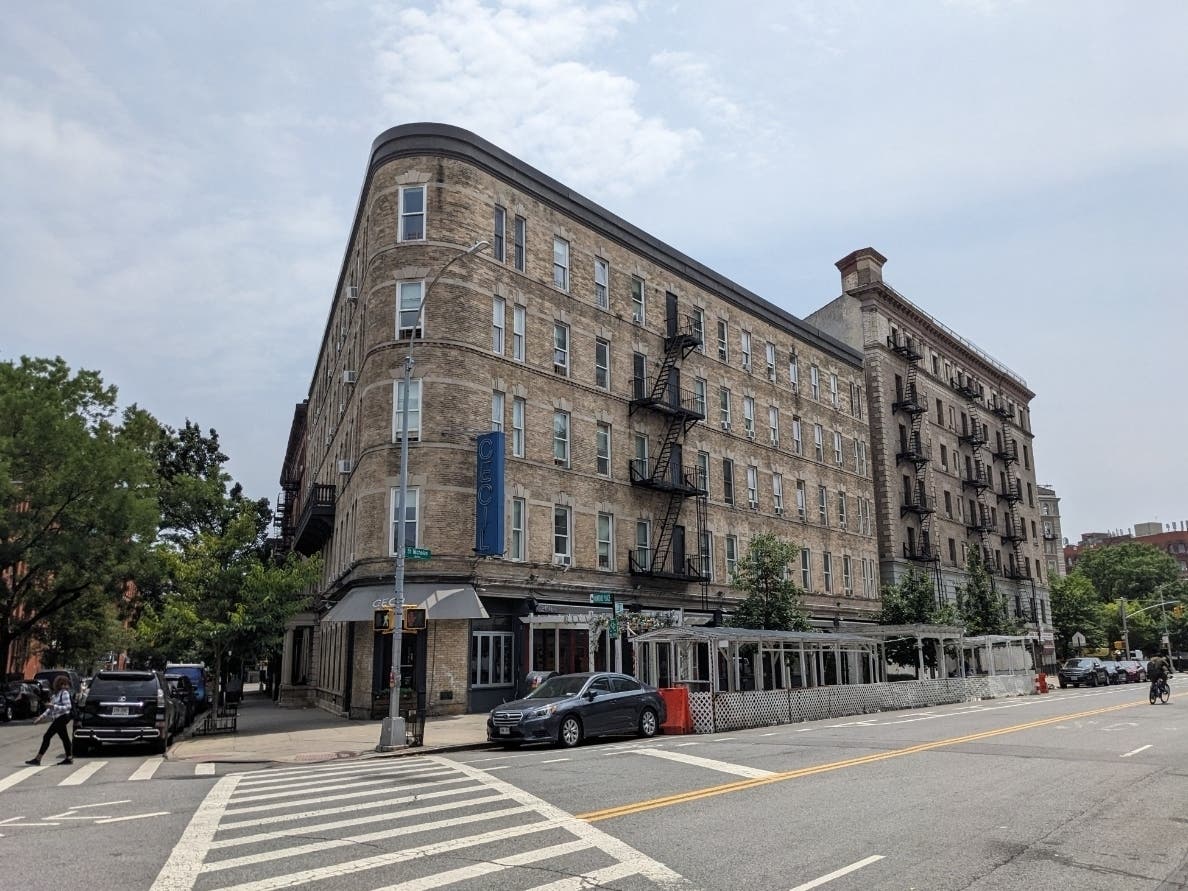Real Estate
Harlem Building With Famed Jazz History Made Official NYC Landmark
A Harlem building that previously hosted a legendary nightclub has been designated a New York City landmark.

HARLEM, NY — A Harlem building with legendary ties to jazz music has been designated a New York City landmark on Tuesday.
The Hotel Cecil & Minton's Playhouse building at 206 W. 118th St. was home to Minton's Playhouse nightclub, which hosted star performers and bands for three decades.
“The story of Jazz is also the story of the Black community, who built tight-knit communities and cultural institutions in the face of racial discrimination," Landmarks Preservation Commissioner Chair Sarah Carroll said in a news release. "I’m proud that the Commission has chosen to honor this history and thrilled that these landmarks will be preserved for future generations to come.”
Find out what's happening in Harlemwith free, real-time updates from Patch.
The five-story building was constructed in 1895 and designed in the Renaissance Revival style by architect Julius Munckwicz.
It was first operated as a residential hotel, before Minton's Playhouse nightclub opened in the dining room around 1938.
Find out what's happening in Harlemwith free, real-time updates from Patch.
The house band played popular songs and accompanied guest singers and soloists, including such notable musicians as Charlie Christian, Roy Eldridge, Coleman Hawkins, Lester Young, and Ben Webster.
After decades of success, the hotel was damaged in a fire in 1974 and Minton's playhouse closed.
It was subsequently listed on the National Register of Historic Places in 1985, and refurbished and and reopened in 1988 as supportive housing for homeless men and women.
It retains many of its original architectural features in the present day, including the entrance to Minton’s Playhouse.
“It is impossible to tell the history of Harlem — and indeed that of New York City and the United States — without imparting the significance of Jazz musicians in the early-to-mid twentieth century,” Harlem Council member Shaun Abreu said in a news release.
Get more local news delivered straight to your inbox. Sign up for free Patch newsletters and alerts.